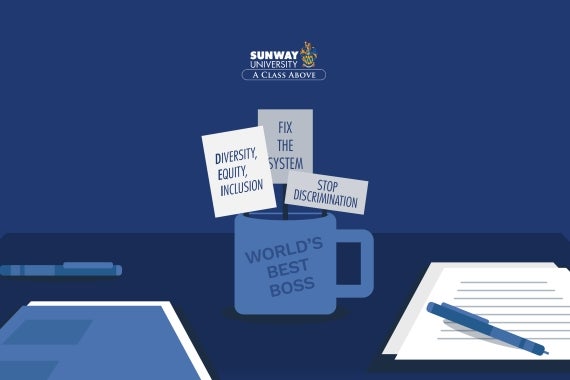The Elite Manager: 15 Technical Skills to Set You Apart

What makes a manager? Sure, it’s someone who – as the job title implies – leads and supervises a team of employees. Ideally, a manager would have a strong grasp of people management and similar “soft” skills to facilitate quality output by individual team members.
But is soft-skill competency, as undeniably important as it may be, enough for managers in today’s workforce? This is a question to be considered especially by those who aspire to a new brand of leadership for the modern era, where data technology and ever-evolving processes take centre stage.
The conversation on “traditional” leadership qualities tends to veer towards non-technical expertise. Think: communication, collaboration, conflict resolution. These should not be discounted, but management excellence for current times calls for dusting off what may be gradually left behind once one makes it as a manager – technical skills.
What are Technical Skills?
Technical skills – defined as the qualities acquired by using and gaining expertise in performing physical or digital tasks – are increasingly becoming part of the bedrock of effective management.
Depending on the industry and job requirement, the type and level of technical skills that a manager needs to possess can differ. However, some technical skills are commonly required across industries, such as software proficiency, technical writing, and project management.
These skills are pivotal not just for day-to-day operations, but for steering your team and organisation towards achieving long-term objectives.

Why are Technical Skills Important for Managers?
The importance of technical skills in management cannot be downplayed. Consider these statistics:
- A study from AND Digital found that 81% of managing directors admit that a lack of digital skills negatively impacts their organisation
- According to Randstad’s 2023 Talent Trends research, 69% of employers believe the increase in automation has created a greater need for talent in highly skilled roles
These figures paint a clear picture: technical fluency is no longer a bonus; it's a prerequisite for success. In today's data-driven, tech-first world, managers who are able to bridge the gap between human leadership and technical understanding are poised to excel.
Fundamentally, mastering technical skills as a manager allows you to:
✔ Understand the technical aspects of your team's work
This facilitates informed decision-making, effective delegation, and clear communication
✔ Leverage technology to boost efficiency and productivity
Being tech-savvy helps you implement solutions that streamline processes and empower your team
✔ Build trust and credibility with your team
Your understanding of their technical challenges demonstrates your commitment to their success and fosters a collaborative environment
15 Technical Skills in Management You Must Master
From data analysis to digital literacy, here are 15 essential technical skills that can elevate managers from good to great. These capabilities will empower you to lead with informed decisiveness, help optimise workflows, and inspire your team to shine.
1. Data Analysis
The ability to interpret and utilise data effectively is crucial. For instance, using Google Analytics to glean insights about website traffic and user behaviour can inform marketing strategies.
2. Project Management
As a manager, it can be challenging at times to keep track of multiple projects and ensure everything runs smoothly. Mastery of tools like Trello, Slack, and Asana enables managers to streamline workflows, ensuring projects are delivered on time and within budget.
3. Computer and Digital Literacy
Having proficiency in MS Office, Canva, and other similar tools can be a game-changer for creating eye-catching presentations, informative reports, and engaging marketing materials.
4. Information Technology
By having a strong understanding of IT processes and the related technical jargon, you can communicate your needs and goals clearly to your team. This will also help you make informed decisions about technology investments, such as whether to upgrade your hardware or invest in new software systems.
5. Data Management and Analytics
Knowing how to use the right analytics tools can make all the difference in educated decision-making when it comes to data. For example, SQL can help you manage and organise large databases, providing fast and accurate results. Tableau, meanwhile, can help you visualise complex data sets in a way that's easy to understand and interpret.
6. Social Media
Knowledge of platforms like LinkedIn, TikTok, and X (formerly Twitter) can aid in marketing, branding, and community engagement. Knowing how to utilise social listening tools and aggregator platforms is also important to be aware of conversations that are happening within the communities you operate in.
7. Human Resources Technology
If you're involved in talent management and recruitment, you know that technology plays a major role in streamlining processes and making your job easier. You can easily track candidates throughout the recruitment process or have access to data-driven insights that help you make informed hiring decisions. Tools like Workday, LinkedIn Recruiter, and BrioHR can help you with these processes.
8. Soft Skills Enhancement
While this is, strictly speaking, a non-technical skill, an increasingly popular way to hone your soft skills is by leveraging technology. Video-based learning and apps such as Virtualspeech can foster good communication, collaboration, and teamwork.
9. Managing Risk
A true leader must have the ability to think ahead, anticipate potential issues, and act preemptively. Often, projections that are key to a team or company’s performance can be made using collected data. A leader with the ability to interpret this data and draw up financial or statistical models to help manage risks better is a crucial asset to any organisation.
10. Time Management
The ability to manage numerous schedules and deadlines with efficiency and precision can make you stand out as a manager. Stay on top of your – and your team’s – to-do list with time-management applications like Google Calendar and Outlook.
11. Problem-Solving
An important skill that managers must have is knowing how to fairly assess a situation, staying realistic when problems arise, and coming up with practical solutions. Using simulations and data visualisation tools, you can understand and frame a problem more easily. Similarly, these tools can be used to come up with solutions. Create prototypes, mock-ups, or demos using specialised software, and monitor the implementation of solutions using analytics tools and dashboards to assess effectiveness.
12. Continuous Learning
With the world of work constantly evolving, managers need to stay updated with the latest industry trends and knowledge. Online learning platforms such as Coursera and LinkedIn Learning have plenty of resources to help you upskill and stay ahead.
To really up your game, you can pursue a master’s degree. Sunway University Online offers 100% online, part-time master’s programmes designed especially for working professionals.
13. Technical Writing
Writing reports is almost a given for a manager. To ensure your reports are clear, concise, and error-free, utilise language and writing tools like Grammarly and Hemingway.
14. Critical Analysis
Managers must be able to look at data critically without getting lost in the semantics. Extensive reading and engaging in various viewpoints can help beef up this skill.
15. Emotional Intelligence
Emotional intelligence relates to your ability to identify and manage your emotions and the feelings of others around you. Honing this skill can help you better navigate and negotiate a situation, given the involved emotional responses.

|
Technical Skill |
Benefits |
Helpful Tools |
|
Data Analysis |
Identify actionable insights from data, support informed decision-making |
|
|
Project Management |
Deliver projects on time and within budget, manage resources effectively |
|
|
Computer & Digital Literacy |
Streamline tasks, foster collaboration, boost efficiency |
|
|
Information Technology |
Ensure data security, solve common technical issues, identify potential IT pitfalls |
|
|
Data Management & Analytics |
Make informed decisions, identify trends, optimise processes |
|
|
Social Media Marketing |
Connect with customers, build brand awareness, drive targeted marketing campaigns |
|
|
HR Technology |
Streamline talent acquisition, manage employee performance, foster engagement |
|
|
Soft Skills Enhancement |
Build strong relationships, foster motivation, facilitate effective communication |
|
|
Managing Risk |
Mitigate potential risks, protect company assets, ensure safety |
|
|
Time Management |
Prioritise tasks, optimise schedules, maximise productivity |
|
|
Problem-Solving |
Tackle challenges creatively, develop effective solutions, adapt to changing circumstances |
|
|
Continuous Learning |
Stay ahead of industry trends, adapt to new technologies, expand skill set |
|
|
Technical Writing |
Communicate technical information clearly, cater to different audiences |
|
|
Critical Analysis |
Empower managers to evaluate business situations, identify opportunities and challenges, and make informed decisions |
|
|
Emotional Intelligence |
Essential for understanding and managing one's emotions and those of others, fostering team collaboration and conflict resolution |
|
How to Improve Your Technical Skills
Now that you understand the critical role of technical skills in management, how do you cultivate them? Here are 3 actionable pointers:
1. Seek Opportunities to Learn
Enrol in courses, attend industry workshops, and explore online resources like Coursera, Udemy, or LinkedIn Learning to acquire new technical skills.
For an official postgraduate qualification, consider a master’s degree, such as those offered by Sunway University Online.
2. Shadow Tech-Savvy Colleagues
Partner with colleagues who possess the technical and/or technology skills you wish to brush up on. Examine their work, ask questions, and gain insights into their approach.
3. Embrace Experimentation and Innovation
Don't be afraid to dive in and experiment with new tools and technologies. Start with small projects, practice regularly, and seek feedback from colleagues and mentors.

Modern Management Excellence is Yours
Mastering technical skills isn't about replacing your core leadership qualities; it's about amplifying them. By equipping yourself with these invaluable skills, you become a versatile, effective, and up-to-date manager who empowers and inspires genuine trust in your team and organisation.
Does upskilling with a master’s degree sound good to you, but concerned about how to juggle work and personal commitments? Check out our top tips for managers who want a master’s degree.
You can also schedule a call with our Education Counsellors to learn more about Sunway University Online’s 100% online master’s programmes and get personalised guidance on how to navigate your studies.





